Fair dealing exceptions
The Copyright & Related Rights Act does not contain a general exception allowing you to copy or use copyright material for ‘personal use’. However, the ‘fair dealing’ exceptions in the Copyright Act allow you to copy/use music, films, books, images, etc. for certain defined purposes.
Note that sheet music is explicitly excluded from all exceptions.
You are not allowed to make copies of software for private use except for backup purposes.
You may only copy from legally obtained material and legal sources. You are not allowed to make copies of illegally shared products or other pirate products, not even for private use.
There is no definition of what is considered ‘fair’ – it will always be a matter of fact, degree and impression in each case. The question to be asked is: how would a fair-minded and honest person have dealt with the work?
The ‘fair dealing’ exceptions include:
- Research and private study – this applies where study is self-directed and not part of a course of study at an educational institution, and is for non-commercial purposes. Copies for private use must not be used for other purposes. Sharing and publishing online is not considered private use.
- Criticism or review – when quoting for the purposes of criticism or review you need to consider the length and importance of the quotation, and the amount quoted in relation to your commentary.
- News reporting – fair dealing with a work for the purpose of reporting current events is allowed for any type of copyright work other than a photograph.
- Incidental inclusion – when a copyright work is seen/heard in the background of for instance a photograph or recoding, where it is of secondary importance to the subject of your work.
- Quotation – when quoting another work in your own work, you need to consider the length and importance of the quotation, the amount quoted in relation to your own commentary, whether your work competes with or rivals the work quoted, and also the extent to which the material quoted is saving you work.
- Caricature, parody or pastiche – so long as this does not cause distress or damage the reputation of the subject.
In all cases, copies made under the exceptions must be accompanied by a sufficient acknowledgement of the creator and source; this means identifying the creator by name, and the work concerned by its title or other description.

